#anthropogenic climate change
Text
This ties into one of the big conundrums of restoration ecology. When trying to decide what plants to add to a restoration site, should we add those that are there now, even if some of those species are increasingly stressed by the effects of climate change? Or do we start importing native species in adjacent ecoregions that are more tolerant of heat?
Animals can migrate relatively quickly, but plants take longer to expand their range, and the animals that they have mutual relationships with may be moving to cooler areas faster than the plants can follow. Whether the animals will be able to survive in their new range without their plant partners is another question, and that is an argument in favor of trying to help the plants keep up with them. We're not just having to think about what effects climate change will have next summer, but also predict what it's going to look like here in fifty years, a hundred, or beyond. It's an especially important question in regards to slow-growing trees which may not reproduce until they are several years old, and which can take decades to really be a significant support of their local ecosystem.
For example, here in the Pacific Northwest west of the Cascades, western red cedar (Thuja plicata) is experiencing increased die-off due to longer, hotter summer droughts. Do we continue to plant western red cedar, in the hopes that some of them may display greater tolerance to drought and heat? Or do we instead plant Port Orford cedar (Chamaecyparis lawsoniana), which is found in red cedar's southern range, and which may be more drought-tolerant, even though it's not found this far north yet?
Planting something from an adjacent ecoregion isn't the same as grabbing a plant from halfway around the world and establishing it as an invasive species. But there is the question as to whether the established native would have been able to survive if we hadn't introduced a competing "neighbor" species. Would the Port Orford cedars and western red cedars be able to coexist as they do in northern California and southern Oregon, or would the introduced Port Orfords be enough to push the already stressed red cedars over the edge to extirpation?
There's no simple answer. But I am glad to see the government at least allowing some leeway for those ecologists who are desperately trying any tactic they can to save rare species from extinction.
#restoration ecology#ecology#habitat restoration#climate change#global warming#anthropogenic climate change#nature#wildlife#plants#botany#trees#endangered species#extinction#environment#conservation#environmentalism#science#scicomm#science communication
2K notes
·
View notes
Text

#extinction#mass extinction#anthropocene#anthropogenic climate change#doomsday#apocalyptic#scary signs
609 notes
·
View notes
Text
here's your friendly reminder to sign greenpeace's petition to ban private jets
#im going to tag this and be annoying because duh#greenpeace#private jets#private jet#climate change#anthropogenic climate change#global warming#petition#hope#good news#<333#🐞 || beetle babbles#signal boost#signal boooooost
14 notes
·
View notes
Text
It’s interesting to me the connection between:
-anthropogenic (human-caused) climate change
-ecological grief (aka climate grief or eco-grief)
-eco-anxiety
-the future amount of people in STEM
-and the happiness of those who are in STEM.
Some definitions so everyone can understand:
Anthropogenic Climate Change: Changes to the Earth’s climate and ecosystems which are caused by human activity, both directly and indirectly.
Ecological Grief: “The grief felt in relation to experienced or anticipated ecological losses, including the loss of species, ecosystems, and meaningful landscapes due to acute or chronic environmental change.”
Eco-Anxiety: Extreme worry about current and future harm to the environment caused by human activity and climate change.
Here’s the thing: You generally cannot go into the sciences right now without hearing about climate change every day. Here’s what I saw/experienced in my first year of College.
Generally in university, in General Biology 1, you learn about how changes in temperature and acidity can cause vital proteins to stop working, and the potential ecological repercussions of this are usually discussed at least somewhat. In General Biology 2 there is usually an ecology unit, which goes into how we study ecosystems, biomes, communities, etc. the different kinds of each, and broadly goes over how humans are affecting them.
In my Intro to Geology course it was talked about a bit, with discussions of where and how we get coal, oil, and gas. We also spent some days watching a particular documentary series called “Earth: The Power of the Planet” (presented by Iain Stewart) and that brought up a lot of important things about climate change.
In both my Geography courses we learned/heard about climate change pretty much every day, and that’s not a huge surprise as one of them was about meteorology and climatology, so it’s pretty fundamental to the field.
But even if you’re not taking these kinds of courses where it is brought up regularly, there are posters and flyers posted all over campuses, depending on the school you might also get notices relating to climate change in your email, there was a slide show that played on a small tv outside the Geology & Geography Department, which is right in front of the stairs to that floor, that included this image.
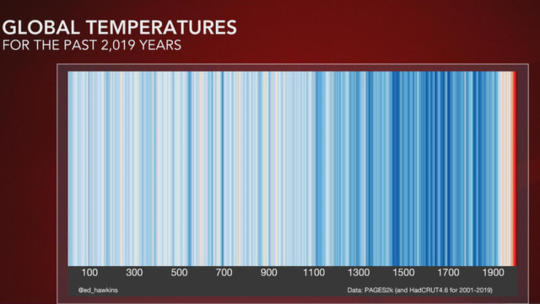
If you’re going to my school to study fashion, at least a couple of your classes are also on that floor, and you walk past this at least a few times a week, so even STEM students who are going into fields that are not centred around or related to biology or ecology hear about, learn about, or experience climate change issues.
And I am not saying that the amount of education or awareness being spread about climate change is a bad thing, we should not stop talking about climate change and the effects thereof; because this is a reality and if people are going to go into these kinds of fields they have to know what’s happening and what’s changing.
What I am saying however, is that this is having an effect on people’s mental health. The people who need to know this info the most, and are most likely going to have to do the most about this, are also the people being so bogged-down by the weight of it, the pain of it, the hopelessness, grief, anxiety, and fear of it, that it’s hurting them. And here’s the problem with having to get up 4-5 days a week and go to campus, get told the horrors of the world and uncertainty of our future, and then go home and continue to study, memorize, and understand the mechanisms for how the human race is destroying the planet and the conditions that made them and allowed them to thrive before making dinner, and then get up and study that all again on the weekends: it’s really really depressing.
It causes those phenomena I mentioned at the beginning, eco-grief and eco-anxiety, as well as a bunch of similar things, people being psychologically impacted by climate change. Psychologists have been observing and giving different names to these things, like the previously mentioned, as well as ecoguilt, solastalgia, biospheric concern, etc.
And let’s be real here for a moment, getting a degree in anything isn’t a smooth ride, it’s not easy and it’s rarely super fun. (Though it can have its moments) However, adding these kinds of psychological issues to the mix is going to increase the rate at which students give up on getting these degrees and try to pursue something that doesn’t make them feel the crushing weight of what feels like the “inevitable” demise of the human species all the time. So my theory is that this will decrease the number of STEM majors (primarily in ecology, geography, biology, and related subjects) who graduate and go on to work in their field.
But for those that push through and want this degree and want to do this work no matter the news they have to hear to get there, or those who just manage to withstand the mental and emotional pain cause by climate change long enough to finish a degree and/or get a job, the effects are still there. My theory is that this will make these people far “less happy” overall, just from regularly having to hear about, witness, study, report on, understand, or teach about climate change. (“Less happy” being pretty vague, I’m using it to generalize higher levels of feelings of loss or grief, anxiety, depression, emotional distress, etc.)
According to this article (https://www.frontiersin.org/articles/10.3389/fpsyt.2020.00074/full) “acute events” (meaning sudden, short, but extreme events of climate change) can cause reactions in people that “act through mechanisms similar to that of traumatic stress,” and people who actively study these events and issues are more likely to witness these events at all, will witness them more often, and will have a deeper understanding of the severity. So an event which the average person may perceive as sudden, short, but simply just sad and not very extreme; is likely to be far better understood by these professionals, who would then perceive it as far more extreme, resulting in it being an acute event, and causing that kind of psychological response.
In summary, it is emotionally and mentally painful to study the sciences during this time of anthropogenic climate change. Increased understanding on the severity of climate change events, witnessing them more frequently, and having to work with/study them regularly as part of one’s education or career, worsens the negative psychological impact these events can have on one’s mind. This makes students in the sciences more stressed and unhappy, which decreases the likelihood that those students will graduate and/or continue to pursue that subject/career. This also makes individuals who continue to pursue the subject/career less happy, and they may experience a higher frequency of symptoms that are similar to those of traumatic stress. We should not stop talking about climate change, we should not stop trying to learn about it and find ways to solve it, but if it continues to be as soul-crushing and psychologically painful to learn about, study, and witness, then the people who we need to study and solve the problem will only get fewer and farther between, which will only make it harder to fix the damage we’ve caused and prevent further damage in the future.
(Anyone here ever heard of a positive feedback loop? Sorry, bad joke, too soon.)
To finish this off I’d just like to say that if you know a climatologist, ecologist, biologist, botanist, meteorologist, etc.:
A) give them a cookie and a hug (as long as they’re comfortable, they deserve it)
B) please don’t ask them to recount the climate change events they’ve witnessed or study regularly, especially not in casual conversation, unless they express interest in sharing. Don’t just bring it up at the family reunion and smiling and staring at them while you wait for them to talk, as they panic internally, trying to think of a way to make this not fill every listener with dread.
C) if you do want to ask them about anything about climate change, ask if they know a way you can help. Volunteering groups, projects, petitions, good papers and articles to share online, simple everyday practices they could tell you about or advise you on how to do right, like using reusable shopping bags and bringing a cutlery kit and a travel cup wherever you go, these are all things that they might know more about or be more aware of than you, and they’re all good things! This will also help to uplift that person, seeing that what they do is encouraging at least individual people to make good choices and good change. Because fighting with companies, politicians, and fighting for grants to get enough money for research and even just general operation, is so annoying and disheartening a lot of the time, and deals with a lot of frustrating bureaucratic processes. So not only are you helping the environment, you’re giving that person hope, hope that maybe this fight isn’t all negotiating with greedy CEOs and uncaring politicians like you’re talking to a brick wall. No, this fight can also be people just choosing to do the right thing.
Sorry for such a long post, just got my mind ticking as I was doing some reading-up on current events, and something in there opened the floodgates in my brain, cause I’ve been thinking about this for a while. I just couldn’t get my thoughts on it quite right before though, and today something just clicked.
#climate change#anthropogenic global warming#anthropogenic climate change#global warming#climate emergency#climate activism#climate crisis#climatestrike#science#stem#stem student#climatology#ecology#biology#meteorology#ecosystem#geography#psychology#eco-grief#eco-anxiety#eco anxiety#ecological grief#solastalgia#university#college#post secondary#education#study#research
4 notes
·
View notes
Text
It's supposed to snow tonight, and if I don't feel in danger walking to the mailbox tomorrow, I'm going to be pissed.
#the worst part about#anthropogenic climate change#is insufficiently snowy winters#also the upcoming drought and famine sure#but the snowy winters are gone now
0 notes
Text
Who is afraid of CO2?
by Dr.Harald Wiesendanger– Klartext
What the mainstream media is hiding
Why we should fear and hate carbon dioxide – A guest article by Elena Louisa Lange about the sense and folly of worrying about “man-made climate change.”
In September, the world witnessed five minutes of climate ideology at its finest. Apple, the world’s most capitalized company, produced a promotional film designed to…

View On WordPress
#anthropogenic climate change#carbon dioxide#climate change#climate ideology#CO2#conspiracy theory#Intergovernmental Panel on Climate Change#IPCC#man-made climate change#NASA#NetZero#photosynthesis#propaganda#UNFCCC#United Nations Framework Convention on Climate Change
0 notes
Text
Heat Wave Survivor T-Shirt
The perfect fabric for a graphic tee and the softest in the business. Various colors and styles are available.

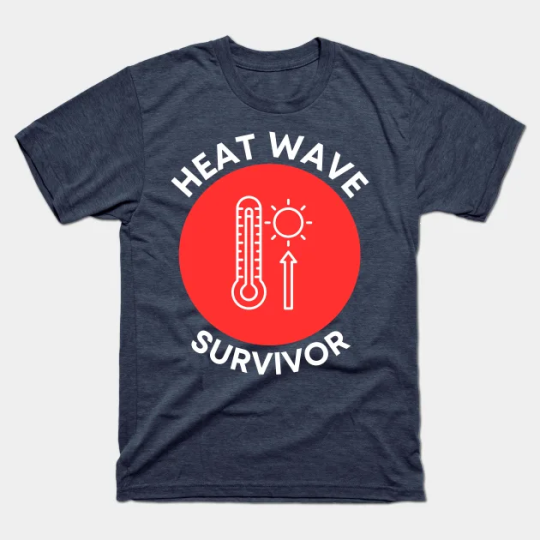
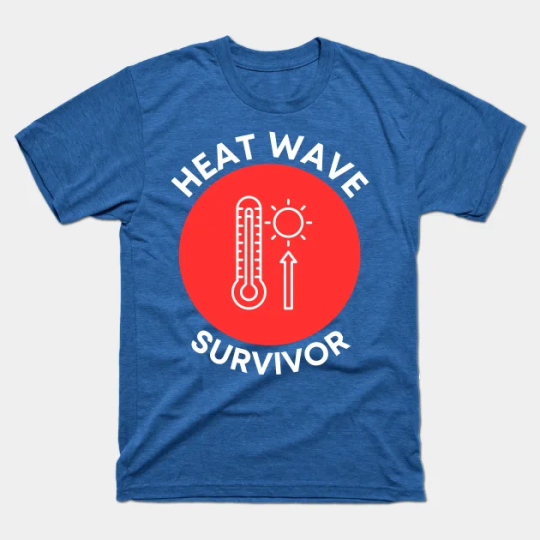
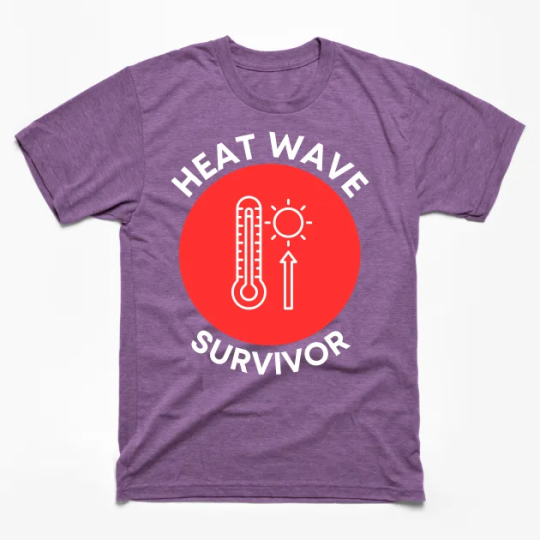
https://www.teepublic.com/
#heat dome#heat wave#heat warning#climate change#climate crisis#anthropogenic climate change#climate emergency#climate action#extreme weather#teepublic#hot weather#anthropogenic global warming
0 notes
Text
Rapid transition to clean energy
Anthropogenic means: Of, relating to, or resulting from the influence of human beings on nature.
The warnings have been there for decades. Based on some estimates the warnings started as early as the 1930′s. By the 1950′s a lot more scientists were speaking about climate change.
Personally speaking and since I am a child of the 80′s, I have witnessed the following individuals talk about the issue of anthropogenic climate change. Including but not limited to and starting in random order:
Isaac Asimov. Science fiction writer and a life-long supporter of reason and science. Sample: https://youtu.be/UQfYKbKdlBM
Carl Sagan: Educator. Sample: https://youtu.be/3rA8c4sqQJw
Former Vice President, Al Gore: https://www.youtube.com/watch?v=8ZUoYGAI5i0 (This is a preview of the documentary that the Vice President helped create. It’s called ‘An inconvenient truth.’
There have been other individuals also.
Up until last year, I was of the opinion that the transition away from fossil-fuel based industries and towards clean energy should be a phased approach. Something that could be carried out in stages over decades.
I was of this opinion, as I thought that we (as a species) had time for this transition. As well, an abrupt transition away would be detrimental to the lives of the many individuals employed in the oil/gas/coal industries.
Also, there is a lot of capital tied up with these industries.
Today, on this day in July 2022. To me it really is starting to resonate with me that:
We have a collective addiction to fossil-fuels. I am reminded of President. George W. Bush’s remarks. ‘Here we have a serious problem: America is addicted to oil.’ Only that you can replace America with the world. It is cheap and convenient to extract oil. To have our industries and economies running with this resource. But at what cost.
Our collective addiction is putting a huge question mark over our ability to ensure that there is going to be a continuity of civilization.
I am not a climate scientist and I do not know what the models suggest. But if the climate does change rapidly, then this could result into death and negative disruption and as it relates to the lives of a lot of people. We have no idea what the second, third order (and consecutive) consequences of our actions (or inaction) is/are going to be.
Our oceans are getting more acidic. Putting into question how we are going to get our Oxygen in the future. By some estimates 70% (or higher by other estimates) of our Oxygen comes from the oceans. Source.
There are a whole hosts of other issues that are occurring because of anthropogenic (human induced) climate change.
For these reasons, today I have changed my stance and I am in favour of a rapidly shifting away from fossil-fuels. Definitely in favour of rapidly shutting down the the oil, coal, cement, beef and other industries. Industries that contribute the most towards green-house gas emissions.
We are trading short-term comforts over our mid to longer term ability in order to be able to sustain civilization. Doing so, could mean the end of human civilization as we know it.
Personally speaking I do not eat red meat and have not done so for many years. With one exception during all these years. I do drive a fossil fuel powered vehicle. But I must be driving <50 kms a month. If I could afford to, I would only travel in electric vehicles - whereby the energy has been harnessed using 100% clean-tech from clean and ethical supply chain systems only.
Overall, I am not a climate scientist or a statistician. So I could be wrong about what I am saying above. As unintentional as that may be. But my feeling is that we are living through a very calm period in human history and also Earth’s climatic record. Technically speaking we are living between these periods of melt between ice-ages.
We may have a limited amount of time during these ice-ages. Also, this is a totally different topic - but I have no idea if it’s a good idea to stave off ice-ages for an indefinite amount of time.
If time is the most precious commodity that we have. Then we may be squandering it by burning fossil fuel. Then powering civilization in order to do so and chasing feelings that may not contribute to our short/mid/longer term survival and our quality of life.
It’s not wise to enable a metaphorical muscle (mechanism) during the time of the actual incident itself. It is highly recommended not to rely on a strategy of going from crisis to crisis and dealing with crisis only when they emerge. Doing so, can hollow out a system.
On the contrary, it is highly recommended to practice during times when there is the affordance to do so. Enabling such mechanisms during peace-time or during times of low VUCA is what (I think) can equip us towards dealing with increasing VUCA in the future.
I hope that saner minds prevail. I am concerned about how ignorant we have been and as it relates to super serious issues like climate change. As well, it doesn’t seem like we are prepared for a world of increasing automation. Which is an altogether different topic. But definitely connected to the issue of climate change.
Again, seeing that I do not have a background in STEM, statistics. Everything I say above can be challenged.
As the saying goes: “We do not Inherit the Earth from our ancestors; we borrow it from our children.”
We can all learn to be a bit more kinder and understanding towards each other. I really don’t think we can afford the luxury of throwing the word sustainability around like a buzzword or something that is a nice to have.
0 notes
Text
I love a city that has nice green spaces but it’s still the city.
#I was gonna call them natural areas but I’ve been thinking a lot about using that language because they’re typically manipulated#by humans and also there’s no such thing as untouched wilderness even outside of the city#cause even if it’s not being directly touched by humans it’s being touch by anthropogenic climate change
13 notes
·
View notes
Text
I wonder why flat earth conspiracy theories seem so much more widespread than geocentric universe conspiracy theories. If anything it feels like flat earth is easier to disprove just by, well. Looking. I guess for a person who knows absolutely nothing about anything, "the Earth is flat" is easier to explain than "the Sun and all the planets orbit around the Earth."
(In addition I sort of assume that most flat earth people don't actually believe the Earth is flat and just use that purported belief as a proxy for "I don't believe anything that I'm told, especially if it's governments or scientists who are telling it to me.")
4 notes
·
View notes
Text

Global Warming is just getting too bad guys we're gonna have to replace all the grass with plastic.
???????????
I'm gonna explode.
10 notes
·
View notes
Text
This is why I don't agree with blanket statements like "humanity is a cancer upon the Earth". The majority of environmental destruction has been perpetrated by western countries over the past few centuries of colonialism and industrialization, and we are the primary source of ongoing demand for resources like timber and fossil fuels. Blaming all of humanity as a whole is short-sighted, to say the very least.
While indigenous people are not a monolithic entity and each community has their own ethics regarding the land, we are seeing increasingly that when indigenous land managers are in charge, the result is a much more sustainable conservation of the land and its resources. The indigenous peoples of the Amazon have been caring for these places for thousands of years, and allowing them to continue those relationships is having a positive effect overall.
#indigenous people#indigenous rights#land back#decolonization#environment#ecology#conservation#science#scicomm#nature#environmentalism#climate change#global warming#climate emissions#climate crisis#anthropogenic climate change
49 notes
·
View notes
Text
being raised by parents who were very science oriented, concerned with climate change and conservation, and who encouraged me to embrace interests in astronomy and ecology only for my dad to now be a climate change denying antivax flat earther who doesn’t believe dinosaurs existed is a special kind of grief i think
#watching it happen is like soul crushing#my mom is sort of on the fence about a lot of that but i know for a fact she doesn’t really believe in anthropogenic climate change anymore#for gods sake my dad installed automatic closers on all the door hinges to make sure our heating and ac was more efficient#to save money but also so that we weren’t burning as much coal and stuff#we used to make games out of sorting the recycling and now they don’t recycle at all#i mean there’s already the grief of my dad being at the bottom of the alt right pipeline and it’s related for sure#but my parents were always somewhat conservative so it feels less drastic on that front#op#and also if you’re my sister and you’re reading this you can just talk to me about it#not trying to talk shit on my family online. just need to vent bc i know others on here hbe similar experiences
6 notes
·
View notes
Text
Although industrialists and their managers struggled to inculcate the work ethic among laborers, its adoption proved to be something of a double-edged sword. On the one hand, managers often succeeded in expanding the reach of the traditional ethic of work; on the other hand, the ethic was not always adopted in the form or with the results they sought. First, the split between means and ends introduces a certain indeterminacy. To function as a disciplinary force, the industrial work ethic is articulated—contrary in some respects to the original Protestant ethic—in terms of earthly goals and tangible rewards. These then serve as ideals around which workers can struggle for reforms—demanding, for example, higher wages ensuring more social mobility, and better, more satisfying work. Second, the process of inculcation through which willing subjects are fashioned does not establish a mimetic relationship between culture and subject; the norm that is internalized is always in some ways altered or hybridized in the process. The battles fought within the discursive frames set by these competing versions of the ethic operate to continually transform their terms.
Since the nineteenth century, the working class has developed its own version of the work ethic, and this alternative work ethic from below has been useful to the political projects of contesting the structural exclusions and cultural marginalization of the class[16]. This "laborist work ethic" of the industrial period, one of several dissident versions that we will continue to discuss in the following section, draws on a variant of the labor theory of value to celebrate the worth and dignity of waged work and to contend that such work is entitled to respect and adequate recompense (Tyler 1983, 200). Rather than malign the shiftless poor, for example, this version of the ethic takes aim at the idle rich (199).
The Problem With Work by Kathi Weeks, p.58-9
#the problem with work#kathi weeks#i think we got monkey's pawed on this one guys#now the billionaires are obsessed with performative personal hyperproductivity and have the money to afford the drugs and medical care#to avoid the usual consequence of working oneself to death#and give themselves the veneer of respectability that they work so hard they might have actually 'earned' their money#I'd prefer those fuckers just partied all day on a private island than decide to Build Rockets and pretend it's high-tech philanthropy#if you're not going to solve the structural causes of anthropogenic climate change then sit the fuck back and blow your money on art etc#build yourself a palace or a model village and get out of everyone else's way
0 notes
Text
Restoring Forests to Fight Climate Change
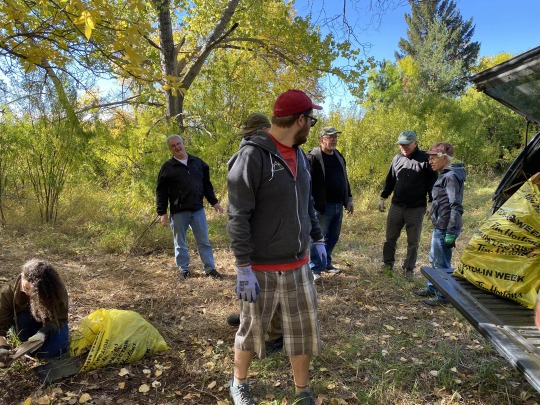
View On WordPress
#adaptation#air#air cooling#anthropogenic warming#biophysical processes#boreal climates#boreal forests#carbon capture#carbon dioxide#CARBON EMISSIONS#carbon sequestration#CARBON SINK#carbon storage#climate#Climate Adaptation#climate change#climate policy#climate protection#Climate Resilience#climate stability#climate strategies#conservation#cooling#deforestation#eastern United States#Ecosystem#ecosystem conservation#ecosystem health#ecosystem recovery#Ecosystem Restoration
0 notes
Text
I wrote some poetry for the first time in a while today. Looking over it now, it is very horny. Extremely horny, AND your regular human kind of horny.
Fuck, that isn't right. If it doesn't sound like I'm spreading my legs for the apocalypse and the end of humanity, it's not me, you know.
#some people talk to therapists about their climate anxiety#some people get laid#I write sexy poetry about the end of the world#writing#there's nothing hotter than anthropogenic climate change
0 notes